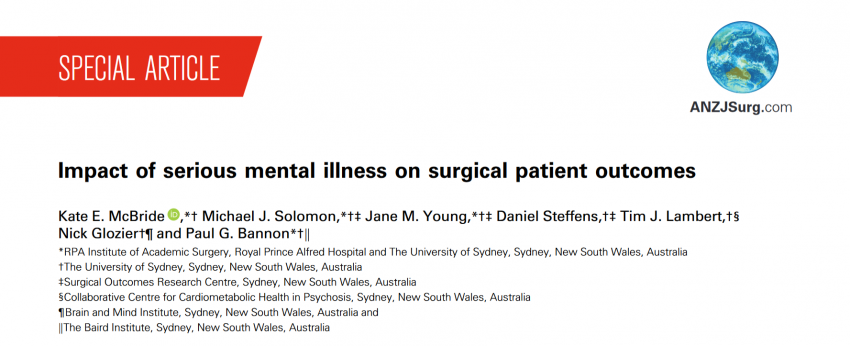A retrospective cohort study involving elective overnight surgical patients aged 18 years and above who attended a large public tertiary referral hospital in Sydney, Australia, between 2010 and 2014 analysed the impact that severe mental illness (SMI) had on outcomes. [1]
Of 23 343 surgical patient admissions, 451 (2%) patients had decompensated comorbid SMI with a subset of 47 (0.2%) having a psychotic illness. Patients with SMI had significantly higher in-hospital mortality (2% versus 0%), postoperative complications (22% versus 8%), total comorbidity (7.6 versus 3.4 secondary codes), admissions (29% versus 9%) and time in intensive care (34.6 h versus 5.0 h), stay in hospital (12.2 days versus 4.6 days), admission costs ($24 162 versus $12 336, a 95.9% increase), re-admission within 28 days (14% versus 10%) and discharges to another facility (11% versus 3%).
The authors suggest that specific perioperative interventions are needed to proactively improve the identification, management and outcomes of these patients.
1 McBride KE, Solomon MJ, Young JM, et al. Impact of serious mental illness on surgical patient outcomes. ANZ J Surg 2018;88:673–7. doi:10.1111/ans.14508


